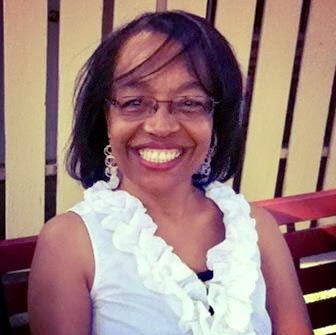
Barbara Lowe
Educator
As a child growing up in Orange County, California, Barbara Lowe loved reading, had an early understanding of the value of education, and not surprisingly, a strong desire to become a teacher. An independent studies alternative education teacher in Orange County for the last 12 years, Lowe has not only fulfilled her dream, but helped hundreds of students overcome obstacles to realize their own.
Lowe has been using the Center’s Character Based Literacy (CBL) curriculum since 2004. Incorporating the CBL program into her classes for at-risk high school students, she has seen real improvement in her students’ skills, which she traces to the curriculum, currently used in the court-community schools of the majority of California counties and hundreds of regular and alternative classrooms throughout the country.
The CBL curriculum is organized around three elements: values, inculcated by role models and heroes; thoughts, including problem solving and reflection; and skills, such as coping and cooperation. “In every lesson we do, in every program we put on, we balance the triangle, taking into account values formation, thought processes, and skill development. That's our reference point,” states Steve Johnson, director of the Character Education program.
One of the hallmarks of CBL is its focus on coordinated lessons plans that integrate with student readings, making the learning process dynamic. “I offer students six novels to choose from for their independent study,” Lowe explains. “Students choose novels they feel they can most relate to, and that tends to make the reading a more relevant experience for them.” The novels encourage thought about a variety of social issues, such as equality, acceptance, and justice, and also emphasize core values, such as courage. For example, To Kill a Mockingbird is a frequent selection in studying not only courage, but racial and character issues. Aware of how important writing skills are, Lowe incorporates this skill into her follow-up exams, ensuring that her students have the writing skills necessary to advance their education and ultimately their careers.
One of Lowe’s key influencers and role models is Tom Kostic, field program coordinator and lead trainer for CBL. Kostic, also a community school teacher for the Orange County Department of Education’s Alternative Court Community Education School and Services (ACCESS) program in Anaheim, worked closely with Lowe in her capacity as a Fellow during her school’s CBL launch in 2004. Kostic helped Lowe refine lessons plans, readings, and assignments. “Tom’s dedication and hard work really helped keep this program alive in our district,” she comments. “I cannot thank him enough.”
Another influence for Lowe has been Ethics Camp, a summer workshop at Santa Clara University for educators on applications for the Center’s Character Education curricula. Ethics Camp typically spawns teaching innovations such as the “Cube,” a graphic representation of ideas and themes raised in literature. “The Cube is wonderful in that it’s both an art project and a learning process, directly related to novels the students are reading at the time,” Lowe comments. “They’re always really engaged, because they have a tangible visual project they can finish.”
As for what the future holds, Lowe says she is looking forward to continuing with the CBL curriculum. “One of the goals is to really get students to think for themselves, and this is what we’re accomplishing,” she says. “When I see former students several years down the road, they always remember the books they read that made the difference in their lives. That really means something.”